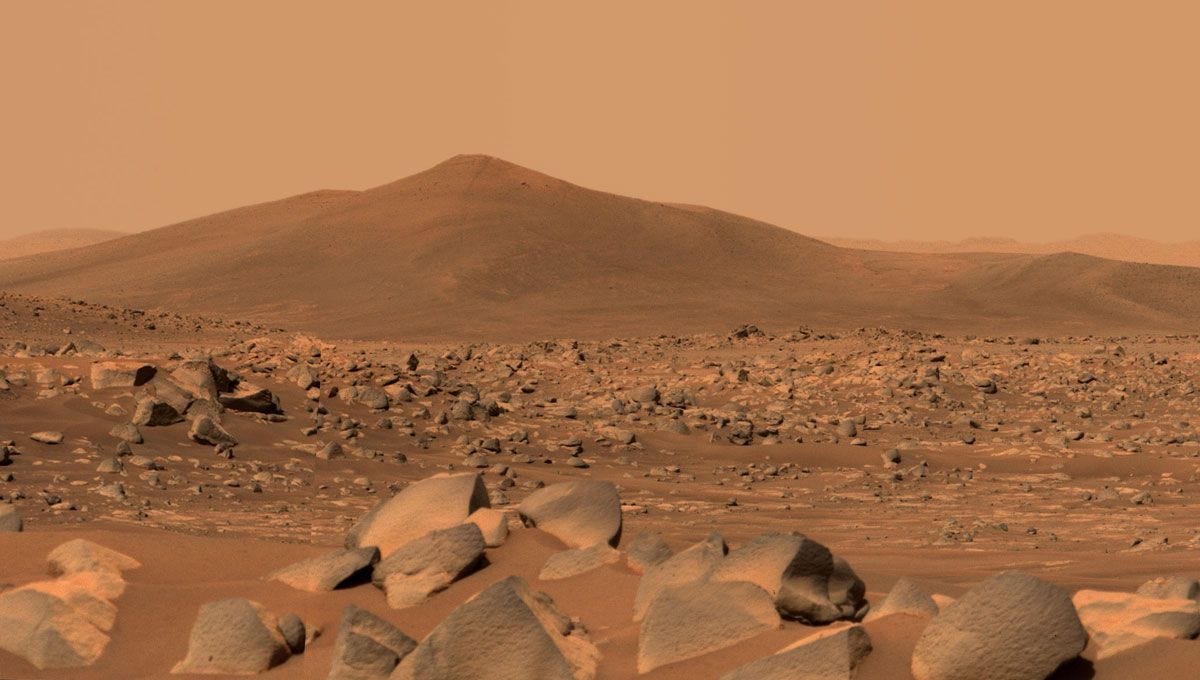#120 | Three-fingered hands to shake
“It's a wonderful thing to be optimistic. It keeps you healthy and it keeps you resilient.” — Daniel Kahneman
“Walk outside on a clear night and just look up into the sky. You are sitting on a planet spinning around in the middle of absolutely nowhere. Though you can only see a few thousand stars, there are hundreds of billions of stars in our Milky Way Galaxy alone. In fact, it is estimated that there are over a trillion stars in the Spiral Galaxy. And that galaxy would look like one star to us, if we could even see it. You’re just standing on one little ball of dirt and spinning around one of the stars. From that perspective, do you really care what people think about your clothes or your car? Do you really need to feel embarrassed if you forget someone’s name? How can you let these meaningless things cause pain? If you want out, if you want a decent life, you had better not devote your life to avoiding psychological pain. You had better not spend your life worrying about whether people like you or whether your car impresses people. What kind of life is that? It is a life of pain. You may not think that you feel pain that often, but you really do. To spend your life avoiding pain means it’s always right behind you.” ― Michael A. Singer
In the late nineteenth century, Giovanni Schiaparelli spotted linear features on the surface of Mars. He called them "calanli", or channels, but dunce English speakers mistranslated them as canals. Artificial canals, at that.
Canals on Mars? This meant intelligent life — canal boats and all.
At the time, canals were a lynchpin of Earth's industrial revolution, invented a century earlier to move coal. For contemporary observers, canals were a vital technology for any advanced species. There couldn't be modernity without them. (This is laughable now).
Many believed that an advanced civilisation equal to ours lived on Mars. Imagine: Soaring towers, a 687-day year (do Martians celebrate half as many birthdays? presumably), and gravity which allows jumping to four feet.
More than anything, friends in our solar system! And only six months spaceflight away. Three-fingered hands to shake, pre-histories to share, cultures to collide. The dream was enticing, and notable astronomers got sucked into the story.
Percival Lowell, an astronomer, was born in 1855. From the 1890s until he died in 1916, he was convinced that these Martian-made canals ("canali" or channels) transported water from the polar ice-caps towards the arid red equator. Many believed his outlandish claims, which read:
"That Mars is inhabited by beings of some sort or other we may consider as certain as it is uncertain what these beings may be."
Lowell believed because he wanted to believe! And people believed him because they also dreamed. His dreams of a sister civilisation looked at the wrong facts; his imagination soared.
There is a paradox that Lowell himself identified,
"Let me warn you to beware of two opposite errors: of letting your imagination soar unballasted by facts, but on the other hand, of shackling it so solidly that it loses all incentive to rise."
Did he hear his own warning?
Eventually, Lowell was discredited for only seeing what he wanted to see. But which of us can blame him? We all do the same. We refuse, again and again, to ask ourselves tough questions because we are desperate to hide from the answers. The questions of who we want to be, what we want to work on, and whether this or that is good for us. Kahneman and Tversky note the same:
"Intelligence is not only the ability to reason; it is also the ability to find relevant material in memory and to deploy attention when needed."
Find relevant material. No reasoning required. Aren’t we intelligent…
Confirmation bias is top of my mind because it's ever-present when starting something new. Bill Aulet tells us that what every business needs is a paying customer. Securing a paying customer means you have to build something valuable for them.
But when starting something new, we have a whole load of hypotheses about a market. If true, these hypotheses validate the idea. But when they are false, you have to change direction. When people say "starting from first principles", I take this to mean starting from the most foundational truths and building from those.
It's something we should have done far earlier with Yokeru. One of the reasons we spent so many months in the Pivoting Wilderness (a dastardly place) was we failed to grasp our foundational hypotheses.
We then failed to test them. Why? Like Lowell, we didn't want to invalidate our hypotheses because it was uncomfortable hearing the answer.
We spent a long time staring up in wonder at civilisation on Mars.
My week in books
Working through Supernatural by Graham Hancock and Snowball by Alice Schroeder (about Warren Buffet). Both good, neither finished. What are you reading this week?
Live well,
Hector
P.S. Writing this, I put on some music with gravity, and toured Mars in 4k (the link takes you to Pillinger Point). It’s mind-blowing.



I love what Michael Singer wrote!
Brilliant. Thanks Hector